I Know You Are, But What Am I? Finding and Losing Ourselves in Stories
As a theatre kid turned theatre lady, my life was made up of stories: seeing them, making them, and talking about them. I embraced the Broadway musical fan-girl lifestyle. Lunch hours were filled with lip-syncing and my iPod was filled with Original Cast Recordings. I owned two copies of the Spring Awakening coffee table book.
It’s the nature of being young, curious, and impressionable: you’re nothing until you find the thing, and then you’ve finally got a brand new set of things to be. I can think of a role model turned obsessive idol for every left or right turn in my prepubescent personality; what else did I have to go off of?
Do we have a sense of what consuming character and narrative does to our psyches? And our perception of ourselves?
Reflecting on this prompted a big question: What have these stories been doing to me, and to young people like me? We love them, and many of us have devoted our sweat, tears, and student loans so we can do theatre forever. Something about holding that mirror up to nature keeps us coming back for more. But do we have a sense of what consuming character and narrative does to our psyches? And our perception of ourselves?
When I think about this, I can’t help but address the big pink and blue spotted Gender Elephant in the room. I’ve been collecting little pieces of womanhood since I found out what Rizzo and Knicky were actually doing in the back seat of that car. And probably before that. But I had no real proof besides a bookshelf and a stack of playbills. Gender and story have been walking arm in arm as long as stories have lined bookshelves and cave walls. As we move further into the depths of questioning gender, its history and its misconceptions, those of us who are past our formative years have plenty of reflecting to do.
I sat down with some people around my age, who have decided to keep pursuing theatre all this time. For the sake of consistency, I kept it to voices who have brushed up against traditionally female gender roles in their lives (although not necessarily “female voices”) to see if we could figure some stuff out: where’d we get all this identity?
Allie Raynor: Let's start at the beginning: what is the first piece of theatre you experienced? The first tangible experience you have with live storytelling? What stuck with you?
Abbey May: I saw Little Shop of Horrors on Broadway when I was seven, and I was just… scared.
Emily Elmore: Mine was also Little Shop!
Sam Buntich: I was nine and I saw Wicked. I really liked the song “Popular” because I thought, “This is what friendship looks like. When I’m a teenager, this is what I’ll do.” Most transformational friendship moments must happen during makeovers.
Grace Hoffman: Mine is ridiculous. I saw Starlight Express, which is just embarrassing. But I was really moved by it! And they were really on rollerblades!
Carey Shannon: Les Mis. And I just wept over the revolutionaries, all the way through. The image I remember the most is the empty chairs at empty tables. I’d never thought, as a ten-year-old, of what it’s like to be left behind like that, and I was just like, “I’m not ready for this!”
Allie: So when you were little, before your teens and tweens, where did you see yourself in theatre? Did you ever see yourself onstage? Did you ever see anyone that looked like you, inside or out?
Emily: I started doing theatre when I was really young. I was a gender non-conforming child and found relief in being cast as boys because it gave me an excuse to be who I was at that time. I would be cast as a swashbuckling pirate in the summer production of whatever we were doing and it was a relief to be somebody else for a while, and to be the parts of myself I wasn't allowed to be.
Sam: I didn't see a ton of theatre when I was a kid, but I was in a lot of it. I started doing shows when I was six. I remember feeling like it really impacted the way that I saw myself, the roles I would get. The roles that I would consistently get were the funny sidekick roles, and that started to influence the way I saw myself.
Carey: I always found myself frustrated with the girl characters available to me. The exceptions to that are what stand out in my mind in terms of the stories that I loved like Hermione in Harry Potter, all the Tamora Pierce books, and Elphaba in Wicked. I was obsessed with them for a really long time because I felt like those were roles I actually wanted, whereas a lot of the time, even now, I find myself wanting to play men. I think that's a function of both my identity and the kind of roles that are available.
Allie: You tacked on a great point, which is specific characters: do you remember any characters that you were obsessed with? What characters were you drawn to, or did you feel like spoke for you or helped you?
Grace: Topanga from Boy Meets World. I was like, “I feel this girl,” and I wasn't even aware at the time that she was this ultra feminist.
Abbey:I idolized musicians like Madonna and Gwen Stefani. That's just how I was raised, which is why I sometimes don't think I fit into the micro-society of theatre because all of my connections to theatre come from my own discovery of them.
Emily: I think I struggled to see my own story told. I remember watching Mulan a lot, and seeing someone who's in an environment that they don't belong in and having to hide that. I wasn't interested in the princesses, but I thought Tarzan was super cool, Aladdin, The Lion King…those were the stories I was drawn to because it wasn't just somebody waiting to be saved, it was people who had agency to actually go out and do something.
Sam: I was down for Disney princesses! I didn't like Snow White or Cinderella because they just kind of hang out, but the later princesses. Even more than those I was really into the off-brand cartoon princesses, like Anastasia, The Swan Princess, Fern Gully, and Thumbelina. I think they were that little bit weirder than Disney stories were allowed to be. Like Anastasia, the movie starts and her whole family is murdered. Swan Princess? She's a swan for half the movie.
Allie: So let's bring ourselves into that space of starting to grow up—teens and tweens, maybe not everyone’s finest hour. Were there any stories, characters, pieces of art or media that you became invested in when you were a teenager?
Abbey: Next to Normal. It was the first time I believed people in a musical. That girl in there, the teenage girl, that's probably the first time I saw myself on stage.
Sam: As far as real obsessions, it was Wicked for me; I've seen it three times. And the other thing that I was obsessive about and possessive about was Shakespeare. I found Shakespeare when I was in early high school and I was like, “This is what makes me a real theatre person.” Theatre had become so much of my identity that I was looking to reinforce it.
Grace: Yeah, I was similar in that way, I started doing theatre in middle school, but adolescence was interesting because I had a fascination with bodies and sex (as I think many people do at that age). I read Eve Ensler's The Vagina Monologues when I was fifteen or sixteen, and it was shocking and beautiful and I connected to it so much. Spring Awakening was just starting up and we were really vibing with it and no one was really sure why, and Eve Ensler is like, “Here's why!” I think it's informed the kind of art I like and the kind of art I do now.
I was a gender non-conforming child and found relief in being cast as boys because it gave me an excuse to be who I was at that time...to be the parts of myself I wasn't allowed to be.
Allie: As you grew up, all the way up to now, have you ever had a character or a moment that you’ve seen where you felt truly represented?
Grace: When I saw Dry Land by Ruby Rae Spiegel this fall it reminded me so much of my high school experience. Just the way girls talked to each other, the small cruelties and the sympathies that no one wants to mention. Fefu and Her Friends, specifically because of the female relationships and interconnectedness. It felt like something that I recognized.
Emily: I definitely had lots of stories where I saw people having feelings that I know that I’ve felt, but I never saw my own story being told about gender identity or not having or wanting a label, until I started reading Mother Hicks. I was just wanted to cry because I couldn’t believe how much I identified with this main character. There’s a character that has no name and the whole story is about her trying to figure out her identity. She just goes by “girl,” and she never finds a name. I thought, “That’s so beautiful, that she could make peace with that.” I feel like the story I see so often told is “…and then they find their label and they’re accepted and they’re happy.” You never see the story of people who don’t figure it out.
Abbey: Performing in Uncommon Women was huge for me. I’ve heard a few people be like, “Nothing happened in that play,” but what I love is that that was the first time I saw women talk and have nothing come out of it, and that was okay. Sometimes it was about boys, but sometimes it wasn’t, and there didn’t have to be a conflict. You can put a bunch of women onstage and they don’t have to conflict, they can just have really great conversations. Or maybe not so great conversations.
Carey: It’s such an interesting question to ask, “where do I see myself,” when in a lot of ways I don’t even see myself when I look at myself, so I don’t even know what I’m seeing. So much of gender is about how I think about myself, how the world sees me, how I react to how the world sees me. So when I love female characters, like Antigone, and I want to play those characters, there’s this knotted part of me that’s like, “Well if you do that then you’re just showing the world that you’re making everything up and you’re just a girl anyway.” But I don’t want to be afraid of that. I just want to play characters that I like.
Allie:You’ve hit on something new—the idea that in this journey towards identity there isn’t just a gaining of identity, but also when character and story confront us with ourselves, we might lose ourselves in a way, or at least reevaluate. So it's a constant cyclical process, asking ourselves, “Well, I thought this was correct, because Elphaba was all I had, but now I have this character, and what does that do? What if I write my own characters, what does that give me?”
Carey: And, “What if I thought this was correct because I never considered any other options?” If we’re talking about behaviors and behaviors of characters, and if that’s what makes us identify with them, on a gender level, a lot of times people who aren’t gender conforming use their behavior as a way to justify to themselves why they feel the way they do in a way that others will understand. But two people can behave in a very similar way and have different gender identities that are honest. I find myself doing that equation all the time: “I like this item of clothing, but if I wear it in the world, and people see me wearing it, I’m going to feel like they’re not seeing me at all.”
Emily:On the opposite end of things, I’ve been having a lot of conversations lately about how wonderful it is to live in ambiguity. And how much of a relief it is to not want a label, because the second I put a label on a part of myself, what if I feel completely differently tomorrow? What an insane amount of stress for something so fluid.
Allie: So we’ve come to a consensus that things can be fuzzy, and that that can make it hard to construct identity. What has changed from when we were younger to now? Before, when we were introduced to a story, we had a certain set of tools. How is it different today?
Grace: Coming from a playwright’s perspective, I think about whether or not there is a female aesthetic in theatre. In Sarah Ruhl’s book of essays, she mentions a playwriting structure similar to the female sexual pattern where there are multiple orgasms, versus traditional male structure which is “going going going orgasm done.” I’d been trying to do that traditional structure for so long, and everything I wrote felt very contrived and stiff and horrible and I hated it but I kept trying. Then over the summer I read Annie Baker’s plays and began to see myself a bit better. I understood that didn’t have to conform to that traditional structure that had been so saturated in maleness.
Sam: I think that we become more aware of tropes as we get older. The first three stories that you read about a man saving a woman, you’re like, “Cool, these are three good stories,” the next 300 that you read…you just get beaten down by it. Now that I’m a dramaturg, my job is to see those patterns and assess when its working and when its not. It’s my job to see the trope that’s buried in there, and say, “We gotta go with this trope, or really make a choice to go against it.”
Carey: I think that getting more culturally comfortable with liminality is sort of running parallel to how we see new forms of storytelling develop. The past few years have seen so much nonlinear storytelling develop in theatre. The sort of exploration of the in-between and ambiguous is really exciting and I wish that it interacted in the mainstream more.
Allie: What stories are you ready to see? What stories are you ready to make?
Emily: I’m very interested in the parts of humanity that are 100 percent universal. Regardless of whatever labels or boxes or identities, or what part of the world you’re from. What do we all have in common equally?
Carey: I’m always hungry for stories of rebels and revolutionaries, whether they’re successful or not, because they do a very specific thing for me which is remind me that it’s worth trying.
Sam: I really love to mess with tropes. Like you’ve seen a twenty-five-year-old sweet, virginal woman, what happens when that’s a boy, and everything the same? That’s the stuff that I really love and want to see more of, fucking with tropes.
Abbey: I think I’m ready to piss off the audience. I want theatre that frustrates audience members.
Grace: I think Young Jean Lee’s theatre’s mission statement is to “destroy the audience”; I think we need more stuff like that. Stuff that makes even theatre people uncomfortable.
Maybe we need to see ourselves as the princess before the wicked witch, and the wicked witch before the talking animal sidekick.
As we drew to a close, the gaggle of participants slowly exited the room, tucking away leftover doughnuts to bring with them on their busy days. After their exit, I was left with a new collection of characters, quick witted and strong. I felt privileged to know the stepping-stones they had taken to all find themselves there, in that room, together. In each case, the connecting thread was the amount of trial and error necessary to land on a finished (or maybe, not so finished) product. We all build ourselves, and the stories and characters that stay with us offer pieces along the way. We take what we like at the time, until something that fits a bit better comes along, and then we carefully splice them. But the process of putting that information together might come at a cost.
What seems to permeate our experiences is the inevitability of perspective. We grow up, and we realize that maybe we didn’t have a full understanding of ourselves. And in a way, how beautiful is that? The idea that we can be in a constant state of renewal and learning is a wonderful one, and something that the theatrical world nurtures.
But with these broadened perspectives come the burdens of frustration and misunderstanding. The more we see of ourselves, the more we must acknowledge that many people can’t see us in our full complexities. We stand in our contradictions, better for the knowledge, but worse for not being able to hand out pamphlets to our friends and loved ones explaining, “Look! I finally found it! The real me!” And the really hard part? Even if we could, we’d have to rip those pamphlets up as we learned more, and more, and more.
What remains is the knowledge that this process of coming to understand ourselves makes us rich in our ability to connect. Every person I spoke to that morning challenged and changed my perspectives, and they couldn’t have expressed themselves with such sharp nuance if they hadn’t raked through the mud a bit. It seems that the process of slogging through rigid gender roles, tired tropes, and weak narratives is a necessary evil of the present, but the frustration may have something to offer; it gives us the full perspective on what we love, hate, and do. Maybe we need to see ourselves as the princess before the wicked witch, and the wicked witch before the talking animal sidekick. It may take a while to figure out we can be all or none of them, and remain ourselves, wonderful and full. The act of sharing stories has never been perfect, but it’s the best tool we have to find ourselves and to better see others. So, flawed and incomplete as our stories may be, we’ll keep seeing them, studying them, and making them; a noble attempt at something as complete as we already are.

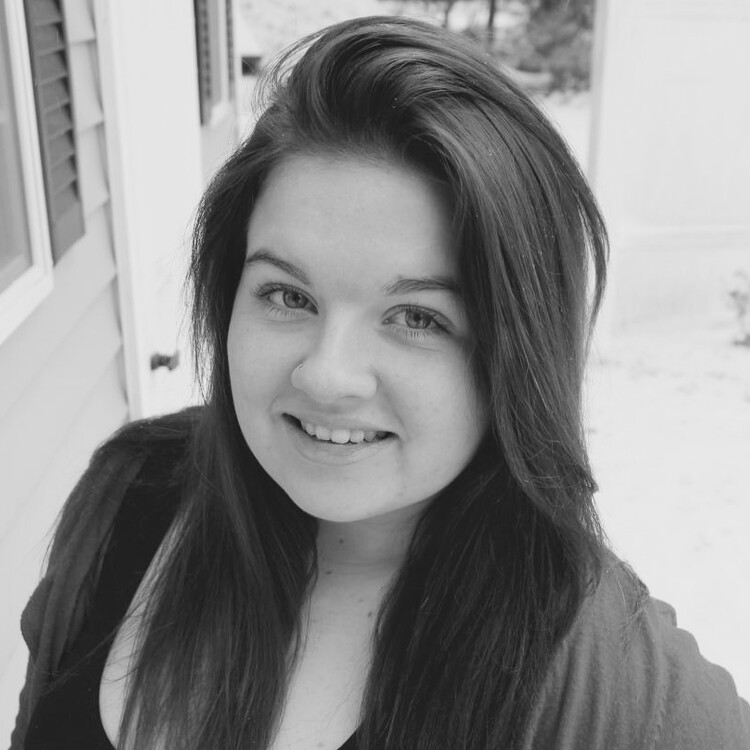
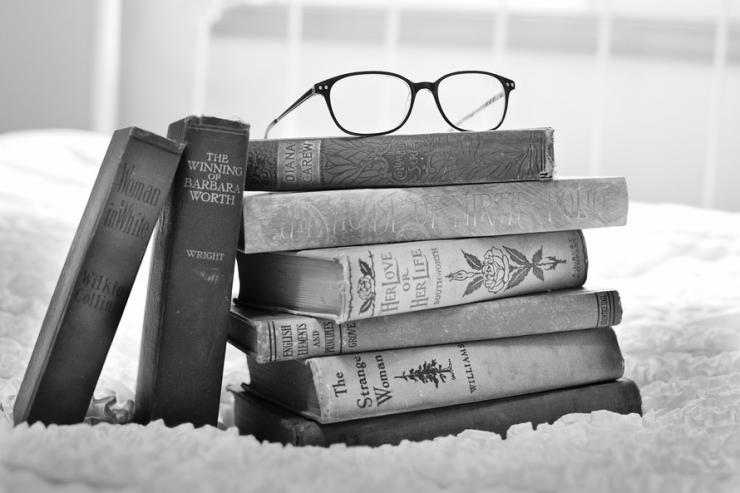
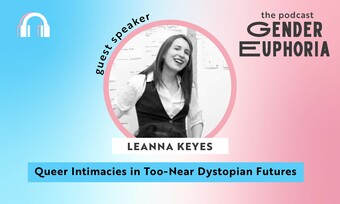


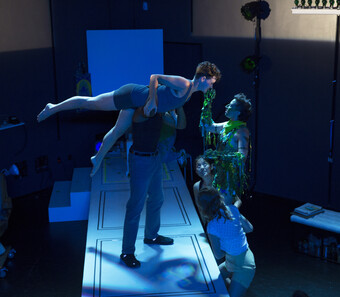

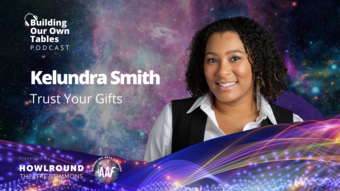


Comments
The article is just the start of the conversation—we want to know what you think about this subject, too! HowlRound is a space for knowledge-sharing, and we welcome spirited, thoughtful, and on-topic dialogue. Find our full comments policy here